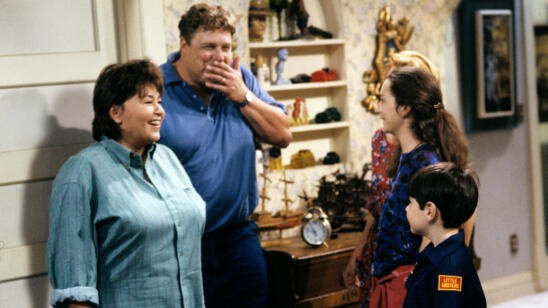
It’s a piece of television history that may have been forgotten by some, but Roseanne Barr’s real-life pregnancy during the original run of her hit sitcom “Roseanne” had a significant impact on the show.
Back in the late 1980s, when “Roseanne” was in its early seasons, Barr, who played the titular matriarch of the Conner family, became pregnant with her third child. Rather than hiding or ignoring the pregnancy, the show’s creators decided to incorporate it into the storyline.

“It was a decision that made complete sense,” recalls executive producer and show-runner Bruce Helford. “Roseanne was this working-class mom, and her pregnancy was very much a part of her reality. We felt it was important to reflect that on the show.”
As Barr’s baby bump became more prominent, the character of Roseanne Conner also began to show signs of pregnancy. The show’s writers expertly wove the real-life development into the fictional world, allowing the audience to experience Roseanne’s journey alongside the character.
“It was a unique opportunity to really dive into the experiences of pregnancy and motherhood from a working-class perspective,” Helford explains. “We were able to explore the challenges, the joys, and the everyday realities that Roseanne, as a character, would be going through.”
The decision to incorporate Barr’s pregnancy into the show’s narrative was widely praised, as it added a layer of authenticity and relatability to the Conner family’s story. Fans connected with the honest portrayal of the physical and emotional changes that came with Roseanne’s pregnancy.
“Roseanne always prided herself on being a show that tackled real-life issues in a genuine way,” Helford notes. “Her pregnancy was just another example of that, and it helped to deepen the audience’s connection with the characters.”

The impact of Barr’s real-life pregnancy can still be felt today, as “The Conners” continues the story of the Conner family. The spin-off series has paid homage to the original show’s legacy, and the writers have continued to find ways to integrate the experiences of modern-day working-class families into the narrative.
“Roseanne was groundbreaking in so many ways, and her pregnancy was just one of the many moments that made the show so special and relatable,” Helford reflects. “It’s a testament to the power of storytelling and the impact that real-life experiences can have on the creative process.”
